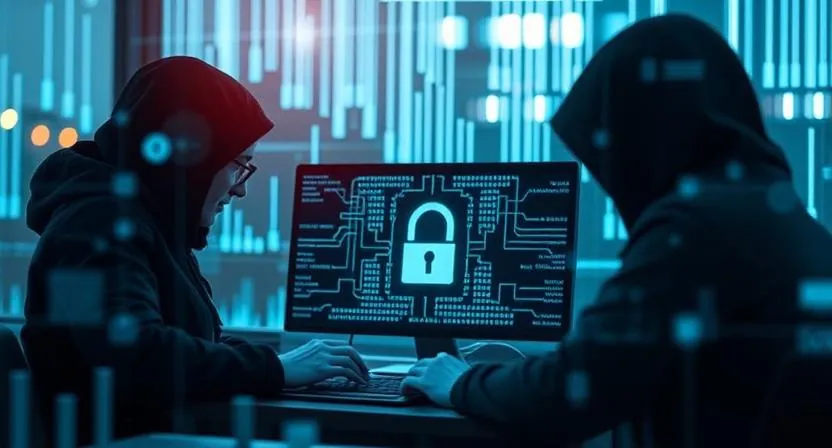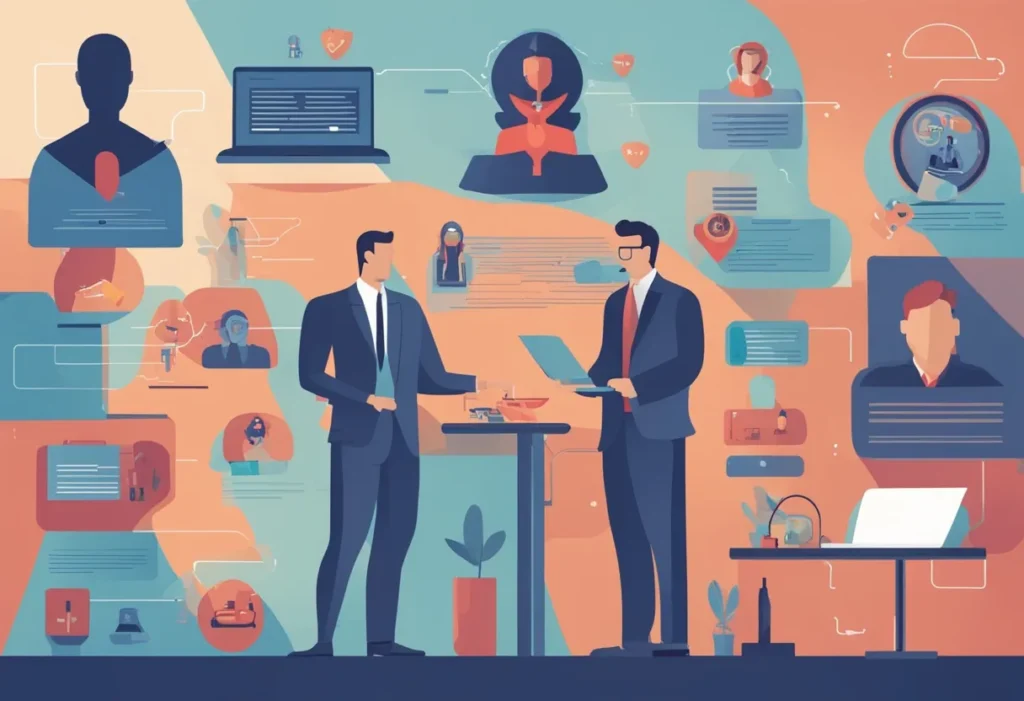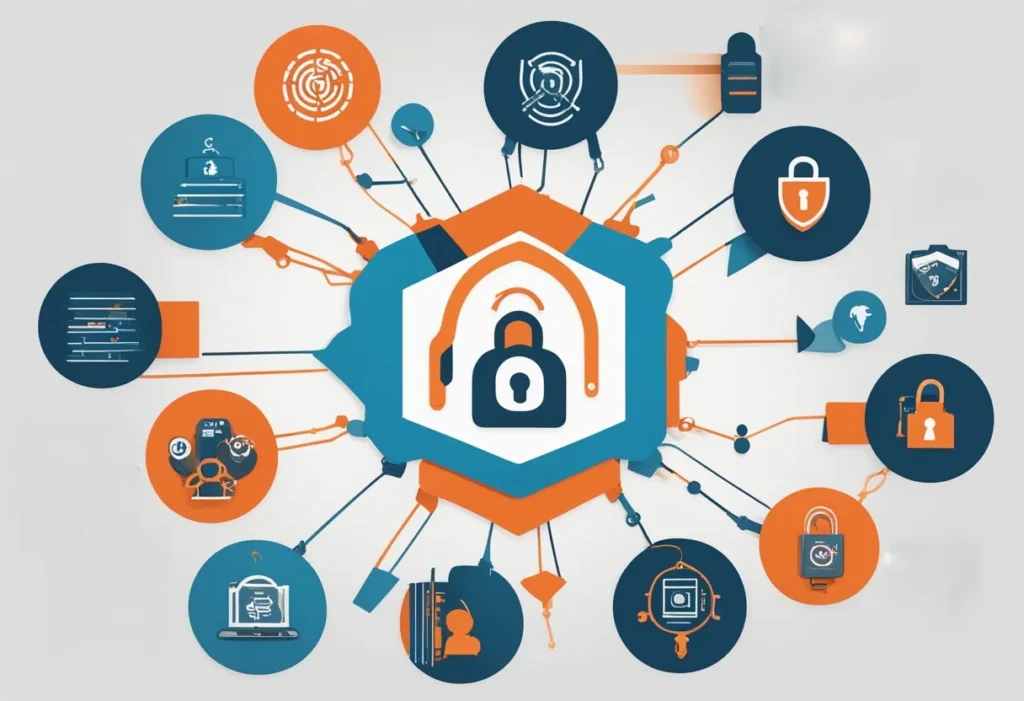Why Cybersecurity Matters (And Why You Should Care)
Ever had your email hacked? Got a weird charge on your card? Felt like someone was watching your online moves?
Cybersecurity is the difference between feeling safe online and getting wrecked by hackers.
Most people think it’s only for tech nerds. It’s not.
If you use the internet (which you do), you need cybersecurity. Period.

What Is Cybersecurity?
Cybersecurity is the process of protecting data, devices, and online identity from cyber threats such as hackers, malware, and scams.
Think of it like locking your doors at night—but for your digital life.
The Biggest Cybersecurity Threats Right Now
Hackers are always cooking up new ways to mess with people.
Here’s what’s trending in the cybercrime world:
1. Phishing Scams (Fake Emails & Messages)
- Scammers pretend to be trusted companies (like your bank or PayPal) and trick you into clicking shady links.
- How to stay safe: Don’t click links from unknown senders. Double-check email addresses.
- Example: If an email says, “Your account is locked! Click here to fix it,” but the link looks weird—it’s probably a scam.
2. Weak Passwords & Credential Stuffing
- If you’re using “123456” or “password,” congrats—you’ve already been hacked (probably).
- How to stay safe: Use a password manager. Make passwords long, unique, and hard to guess.
3. Public Wi-Fi Hacks
- Free Wi-Fi is a hacker’s playground.
- How to stay safe: Use a VPN (like ProtonVPN or Windscribe) when connecting to public Wi-Fi.
4. Ransomware Attacks
- Hackers lock your files and demand money to unlock them.
- How to stay safe: Back up your data. Don’t click on shady attachments.
5. Identity Theft & Data Breaches
- Hackers steal your personal info and sell it on the dark web.
- How to stay safe: Use two-factor authentication (2FA) on all accounts.

How Cybersecurity Protects Individuals and Businesses
For Individuals:
Cybersecurity keeps personal data safe from cybercriminals looking to steal money, identity, or private information. Here’s how:
- Protects Personal Data – Prevents hackers from stealing sensitive info like banking details, passwords, and personal IDs.
- Example: A hacker gains access to an email account and resets passwords for banking and social media accounts. Strong passwords and two-factor authentication (2FA) prevent this.
- Prevents Financial Loss – Stops cyber fraud, unauthorized transactions, and identity theft.
- Example: If someone tries to access your PayPal account from another country, security alerts and login authentication stop them.
- Blocks Malware & Viruses – Security tools like antivirus software detect and remove threats before they cause damage.
- Example: Clicking on a fake email link downloads a virus that locks files (ransomware). Good antivirus software detects and blocks the threat before it spreads.
- Secures Online Communication – Encryption tools keep emails, messages, and calls private.
- Example: Apps like WhatsApp and Signal use end-to-end encryption to ensure only you and the recipient can read your messages.
- Enhances Online Privacy – VPNs and privacy-focused browsers help mask digital footprints from advertisers and hackers.
- Example: Using a VPN on public Wi-Fi at a coffee shop prevents hackers from stealing passwords or banking details.
For Businesses:
Cybersecurity isn’t just about personal safety—it’s a critical part of business protection. A single cyberattack can cost a company millions. Here’s how cybersecurity helps:
- Prevents Data Breaches – Protects customer and company data from being leaked or stolen.
- Example: A retailer experiences a credit card data breach, affecting thousands of customers. Strong encryption and secure payment gateways prevent this.
- Ensures Business Continuity – Stops cyberattacks that could shut down operations.
- Example: A ransomware attack locks a company’s entire system, demanding payment to restore access. Regular data backups and robust security measures allow quick recovery without paying ransom.
- Protects Reputation & Trust – A hacked business loses customer trust, and rebuilding it is tough.
- Example: A hospital suffers a cyberattack exposing patient records. Customers lose trust, and legal consequences follow. Cybersecurity measures like data encryption prevent these issues.
- Secures Remote Workforces – With employees working remotely, cybersecurity ensures safe access to company networks.
- Example: An employee connects to the company’s system from an insecure Wi-Fi network. A Virtual Private Network (VPN) encrypts the connection, preventing hackers from accessing company data.
- Avoids Legal & Compliance Issues – Many industries have strict data protection laws. Cybersecurity helps businesses stay compliant.
- Example: GDPR (General Data Protection Regulation) in Europe mandates strict security measures for businesses handling personal data. Companies that fail to comply face hefty fines. Implementing cybersecurity policies ensures compliance and avoids penalties.

Must-Know Cybersecurity Tools (And They’re Free!)
Staying safe doesn’t have to cost a penny. Here are some killer free tools:
- Bitwarden – A free, open-source password manager that keeps your credentials safe.
- ProtonVPN – Secure & free VPN with a strict no-log policy.
- Malwarebytes – Scans your device for malware and removes threats.
- Have I Been Pwned? – Checks if your email has been hacked in a data breach.
- Cloudflare DNS (1.1.1.1) – Faster & safer browsing with privacy-focused DNS.
- Authy – A free and secure two-factor authentication (2FA) app.
- GlassWire – Monitors network activity to detect suspicious behavior.
Cybersecurity for Beginners: The Quick & Dirty Guide
No need for a PhD in hacking—just follow these golden rules:
- Use Strong Passwords – And don’t reuse them.
- Turn On 2FA – Extra security layer = less risk.
- Think Before You Click – Scammers love click-happy people.
- Update Everything – Old software = security holes.
- Use a VPN on Public Wi-Fi – Keep your data locked down.
- Back Up Your Data – Just in case things go south.
Cybersecurity Myths That Need to Die
Myth 1: “I’m Not Important Enough to Be Hacked.”
Hackers don’t care who you are. If you’re online, you’re a target.
Myth 2: “Macs Don’t Get Viruses.”
Wrong. Macs can get hacked just like Windows PCs.
Myth 3: “Incognito Mode Keeps Me Safe.”
It just hides your history. It doesn’t protect you from hackers.
FAQs
How do I know if I’ve been hacked?
Signs include:
- Strange logins on your accounts
- Unexpected password reset emails
- Slow device performance (possible malware)
What’s the best way to secure my social media?
- Use strong passwords & 2FA
- Don’t overshare personal info
- Avoid clicking random links in messages
Can I recover my data after a ransomware attack?
If you didn’t back it up, probably not. That’s why backups matter.
Know More:
For deeper dives into cybersecurity, always check out daytalk.in.

